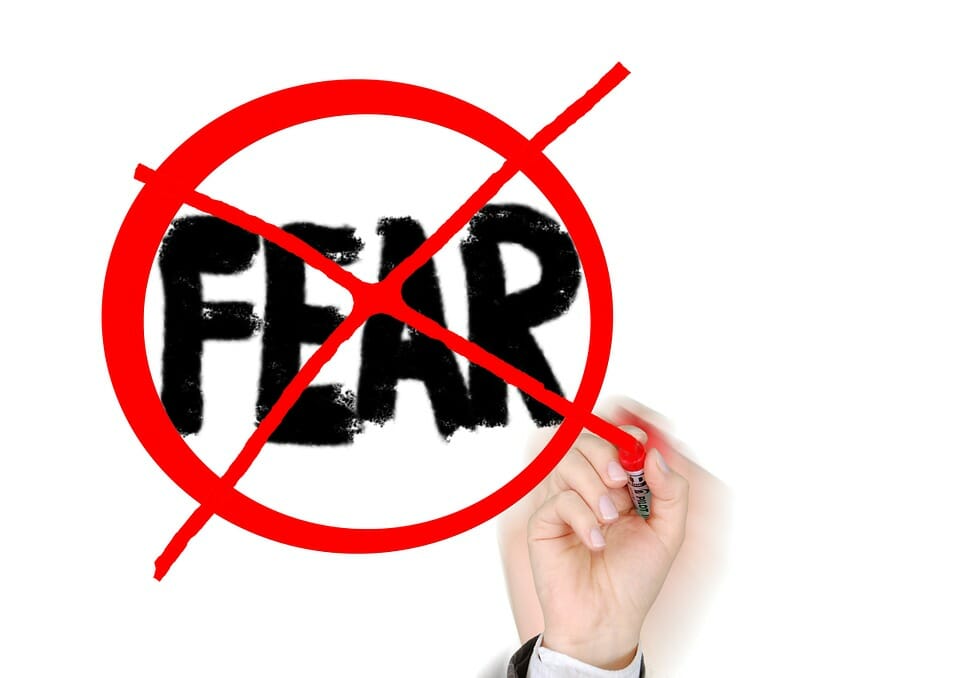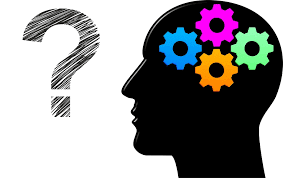Why You Are Not in Your Right Mind, Right Now

 Brain science tells us that our brains do not work well when we are afraid. When we feel threatened, our higher, mammal brains shut down so that all our brain power can deal with the crisis–we need to concentrate on “fight or flight.”
Brain science tells us that our brains do not work well when we are afraid. When we feel threatened, our higher, mammal brains shut down so that all our brain power can deal with the crisis–we need to concentrate on “fight or flight.”
So, what happens when the crisis is going on for weeks? What happens when there’s nothing to fight and nowhere to run? That’s where we are now.
Hildy Gottlieb studies brain science. Here’s what she wrote.
The problem:
We are in danger mode. Even though we know that, rationally, the rational part of our brain is not in the driver’s seat. She puts it this way:
Just because I knew what was happening to me didn’t mean I could stop it right then and there. Evolution has created those fear mechanisms to keep us alive. That evolution was not going to let go without a fight!
The solutions:
Connection. We survived for millennia as social animals, depending on one another. Being around people instinctively makes us calmer, except when those other people are experiencing danger. Then, we catch the danger feeling.
Solution: Spend your social time (including social media time) with people who are focusing on life, not fear of death.
Seeing the path. We are afraid of the dark because we are visual beings. We don’t like the unknown.
Solution: Create a plan; have a vision of it. Keep reminding yourself of the plan. And connect to other people (are you seeing a pattern yet?)
Calm Your Survival Brain
Notice who and what is upsetting you:
As I wrote on April 13, you have control of who and what you are paying attention to. If someone in your bubble is throwing gloom and doom or hyperbole all over you, notice how your mind and body reacts.
The key here is to notice examples of fear-based thinking in yourself. Notice what is guiding your decisions. Ask yourself, “What am I feeling right now? Where am I noticing that feeling – in my head? In my tightening muscles? In my gut?” [Hildy Gottlieb]
Tone down the judgment:
Remember that the person sending toxic stuff to you is afraid. I am generally able to accept that another person’s fear is valid, except when their actions can be harming me.
For example, I was able to discuss Covid-19 with my Trumpy brother. In an early March conversation, he said it was a mild illness and there is no need for the government to get involved. I simply said, “The science is against you on that (he considers himself logical and scientifically minded). Time will tell whether what I have been reading is right or not.”
This exchange allows for an open door for him to save face when the pandemic hit his state. This also allowed me to avoid getting wound up about his denial.
I was able to do that, since I had already assessed, in my head, that he was doing me no harm. Why is he harmless? He has a small sphere of influence, so he is not spreading the message to ignore the virus. He will not be in physical contact with anyone else in my sphere because he is retired and is almost always at home anyway.
Hildy Gottlieb goes further. She speaks of compassion. Frankly, I am not there yet.
One practice I find helpful is to put myself in the shoes of others, to intentionally feel their pain and fear. When I breathe in the pain of someone else, I can stop blaming them for making seemingly silly choices, and can begin to understand why they made that choice. When I listen in that way, doing my best to feel what that other person might be feeling, my judgment about them falls away as my compassion grows.
Importantly, when our judgments fall away, the survival brain has no reason to fire when we think of that person. During these times when everyone around us is afraid to some extent, connecting to their fears through the lens of compassion is a solid step in quieting our own survival reactions. [Hildy Gottlieb]
Calm your fear-brain
 When you are in fear-mode, you aren’t thinking straight, remember? In order to think straight, you need to get out of fear. There are lots of ways to get back to mental safety. I can’t tell you which to choose, but play with these options:
When you are in fear-mode, you aren’t thinking straight, remember? In order to think straight, you need to get out of fear. There are lots of ways to get back to mental safety. I can’t tell you which to choose, but play with these options:
- Simply remind yourself where you are. “I am home. I am not sick. I have a house full of food.”
- Listen to music, daily. At the same time every day.
- You Tube a program to follow, then follow it. If you don’t trust your own discipline, get a buddy. You can both watch the same video and talk before and after class.
- Get outside, even if it is into your yard. City dwellers, you can still walk on the streets, six feet from your neighbors.
- People, you need people. Even introverts need people. They just need fewer people for less time. We are social mammals. Stay connected. Pick who you want to be connected to, and hold on tight! You will feel safer just knowing that other people are out there.
- Stop bashing yourself! When we are stressed, we make mistakes. “We” equals all of us! We drop things. We put things down and forget where they are. We forget names, phone numbers, how to work some website that we use all time. Instead of saying to yourself “What a moron!” say, “OK, that didn’t work. What’s next. You can fix this.”
- Be grateful. Jon Kabat-Zinn famously said, “If you are breathing, there is more right with you than wrong with you.” In the pandemic, this is even more obvious. You can wake up and think, “I am healthy. I am eating well. I am grateful that I am healthy, that I can eat well…” Then, you can go on to other security and joy that is available in your life.
Many people do better when they write down what they are grateful for, regularly. Some people have gratitude buddies who will remind them about all that is going right for them.
Wishing you more time in your right mind, and a lovely spring.